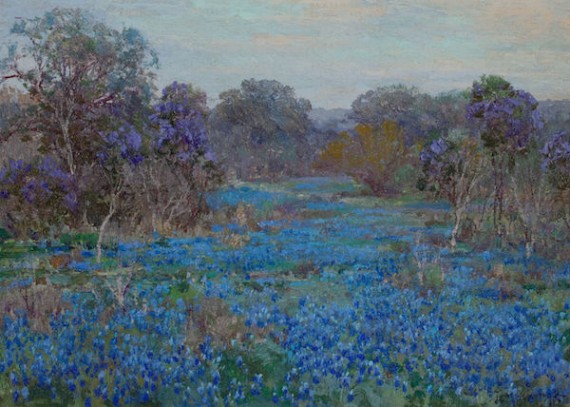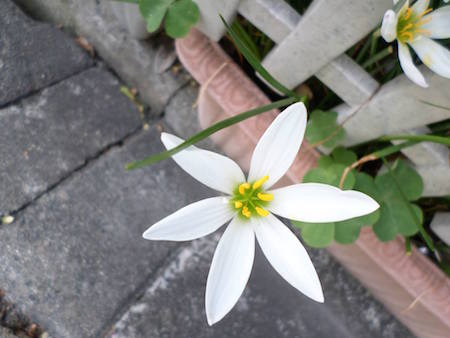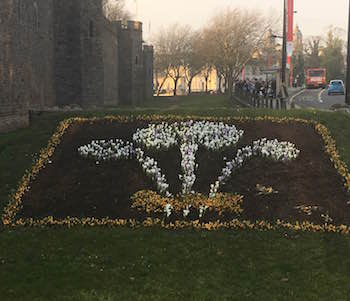
Week 8 Prompt: Flowers
Flowers look beautiful and have a wonderful smell, but they have a steep environmental cost. Cut flowers — the kind given at holidays, birthdays, funerals, and dinner parties — are often grown in countries where the climate is warm all year. Kenya sends roses to Europe; Equador supplies them to the United States. At the same time, labor practices can be exploitative, and lax environmental regulations mean flower-bearing plants can be treated with harmful chemicals. In that sense, perhaps the best and most beautiful flowers are those that grow locally: as “weeds,” in flowerpots, on trees, in bushes. This week, as spring begins to bloom in the northern hemisphere, look at the flowers blooming in your area. Are they native? Do they grow on their own, or are they actively cultivated? Take a picture of some flowers, then tell us where they’re grown and who (if anyone) is responsible for them.
Ryan Hildebrandt
Flowers are everywhere in Kyoto, as they are in much of Japan. Flowers are found in many aspects of Japanese culture and have a much stronger symbolism in Japan than they do in America. Most flowers have a strong connotation and symbolism associated with them, and they are accordingly used much more extensively in literature, art, and storytelling than in other cultures. Most of what you’ll see in Kyoto, however, are wildflowers or flowers growing in people’s gardens just next to the sidewalk. Many homes and apartments have small flower gardens or boxes in the front, and throughout my time in Japan I took many many photos of these streetside flowers.

Zachary Weaver
Flowers have special meaning here in Wales. Two of the most well known symbols of Wales are plants – the leek and the daffodil. Naturally, one may ask how leeks and daffodils, two very different flowers, came to represent Wales in addition to the Welsh Dragon. The root of the issue comes in the form of the Welsh Language.
In ancient times, there was a large battle for Wales in which Welsh archers were firing at their enemies from the top of a hill. The plants that covered that hill? The leek – or cenhinen in Welsh. While the authenticity of the story has been called into question, the leek has historically been the main plant of Wales. However, in the 19th century, there was a large push for a more romanticized version of Welsh history, changing the national costume and history to bring a “better” version of Wales to the modern world. A politician named David Lloyd George championed the adoption of a national plant. In a mistranslation (which may or may not have been on purpose), George accidentally translated cenhinen Bedr as the national flower, instead of cenhinen. In Welsh, cenhinen Bedr stands for St. Peter’s Leek, which is known today as the daffodil.

Next to Cardiff Castle are many beds of flowers, such as this bed, that are grown in the form of another national symbol of Wales: The Welsh Crest.
As such, these two plants are seen growing everywhere in Wales. It is quite common for households to have pots of daffodils growing in pots outside their house or in their garden. Many national buildings and sights, such as Cardiff Castle, grow beds of leeks and daffodils to promote national pride.
However, other flowers are often grown in Wales. Many large estates have very intricate and beautiful gardens filled with flowers both foreign and native to Wales and the United Kingdom as a whole. Going to national gardens in the UK is a favorite pastime of many people, and many residents have their own miniature gardens where tulips and roses are grown in addition to many different forms of vegetables.

